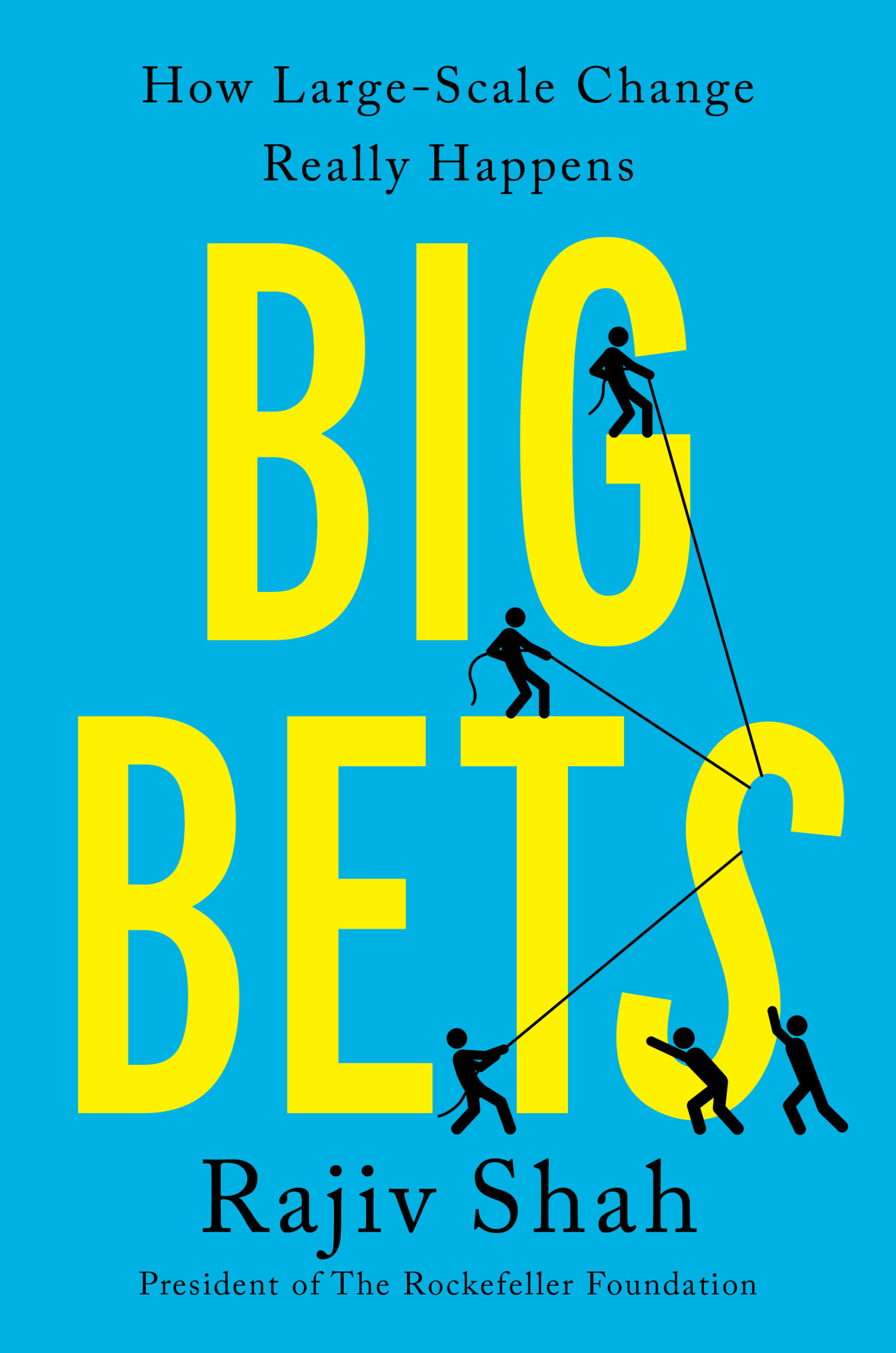Think of an extraordinarily tough challenge.
Here’s a non-exhaustive list to start the conversation. Billions of people are mired in poverty, suffering malnutrition, or living in communities that limit their dignity and access to opportunity. Democracy in many nations is under fire. Our very way of life is contributing to a climate crisis that’s altering life on the planet and potentially making more of the world unlivable. Technology is changing our lives with inescapable speed, hurling us in directions that are both exciting and scary.
The creeping feeling of helplessness you get reading that paragraph is the aspiration trap beginning to close in on you.
Would-be world-changers too often get so caught up in a tough problem’s complexities that they forget to seek and then address the root cause, or core reason, that a problem has gone unsolved. They worry about upsetting people on the way to real change, so they set their sights too low or are content to address only a small piece of the problem. They think there isn’t enough money or support to achieve large-scale change, so they ask too little of others. Or they lose their way and fail to track results precisely enough to know whether their efforts are succeeding or falling short.
The aspiration trap snares too many too often. It’s the reason so many people have grown cynical, detached, or apathetic. It’s the reason some people roll their eyes when you say, “We should end poverty,” or, “We can save our planet from the havoc we’re causing.” It’s the reason that instead of going big enough, people settle for doing good enough.
It’s the reason that instead of seeking outright solutions for the root causes of the problems we face, many give aid or charity or make incremental improvements and then move on.
A big bet mindset unlocks the dedication required to avoid the aspiration trap altogether. It raises your expectations for the scale of impact you can deliver. It prepares you for the long timeline required for real progress— seeing improvements as milestones on the way to lasting solutions. It helps you shoulder the intellectual challenge to determine a problem’s root cause and what it will take to solve it. And it makes getting out of bed every morning invigorating and fun— because you’re trying to make genuine progress on big meaningful things.
And it will help you conceive and carry out big bets for humanity.
“Big” matters
A big bet is a concerted effort to fundamentally solve a single, pressing problem in your community or our world. Big bets require setting profound, seemingly unachievable goals and believing they are achievable. Big bets require finding a new way of thinking or doing things—often inspired by a technological advance or a novel method for harnessing the know-how, fortunes, and energies of others.
Big bets require developing broad alliances, often among unlikely partners like government and business, that can summon sufficient resources and diverse capabilities to break through the constraints that so often limit social progress. And big bets require following through on measurable outcomes for as long as it takes for people and communities to benefit.
You might be wondering, isn’t this guy just naïvely idealistic or simply naïve—as some have accused me of being in the past? Can big bets really pay off? Are there really enough individuals and institutions in the world ready to join alliances around big bets? Aren’t most people just concerned about themselves?
I’ve heard all those questions throughout the years. Questioning the motives or even the sanity of those seeking to make big change is easy. And today, doubt itself is a convenient refuge. Social media can be an open forum for gripes and sniping. Our politicians’ words and actions and corporate executives’ pay packages reinforce the prevailing cynicism.
But I’ve also seen how setting bold aspirations and maintaining a commitment to solving our biggest problems can stir people to action.
Time and again, I’ve seen how the quest to solve the world’s biggest problems unlocks energy and enthusiasm and collaboration from all types of unlikely partners. They may not act when you say, “Would you like to help vaccinate a few kids you’ll never meet in a country you’ll never visit?” But their ears perk up, their ambitions stir, their hearts beat faster when you ask, “How would you like to ensure no child gets polio ever again?”
“Big” matters. If you aspire to solve big problems, people—sometimes one by one—will join you. They will pull more than their weight. Sometimes they’ll even perform unimaginable feats. The bigger your goals, the better your chances of bringing in sufficient partners, allies, and supporters to solve root causes and deliver large-scale change.
It doesn’t matter when the desire to try to change the world first strikes. Some people seem born with a mission, while others hear humanity’s call far later in life. You don’t need some elaborate life plan—or even your family’s complete support—to join the fray.
I was inspired to make the world better when I was seventeen, and that desire came by a twist of fate. Even then, and long after, I struggled to give that calling a firm direction and worried how it fit with the expectations that come with being the first child of immigrant parents building a middle-class life in the United States.
Excerpted from BIG BETS: How Large-Scale Change Really Happens by Rajiv Shah, published by Simon Element, a division of Simon & Schuster, Inc. Copyright © 2023 The Rockefeller Foundation.




